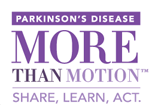
Why You Should Consider a Clinical Study
The term clinical study may sound intimidating, but when it comes to finding a treatment for chronic diseases, experts agree that clinical studies might be a patient’s best bet.
According to the Food and Drug Administration, clinical studies are voluntary human research studies designed to answer questions about the efficacy and safety of certain treatments, such as vaccines, drugs, therapies, or medical devices. Over 40,000 patients enroll in clinical trials in the United States every year some do so because they want to test out a cutting-edge therapy or medicine that hasn’t yet been made widely available, while others do so simply to help advance research.
“For many people, clinical trials are often the best-case scenario,” says Lisa Hughes, director of strategic partnerships and projects at the National Patient Advocate Foundation (NPAF). “You’re getting closely monitored care in a clinical trial, and there is a lot of interest in patient outcomes and quality of life,” she explains. “Sometimes patients aren’t eligible, but often they just aren’t aware that a trial is happening,”
But although interest in clinical studies is growing, advocates say there are many barriers to enrolling, such as accessibility, which often deter patients from getting involved. Insurance companies may also be reluctant to pay for some of the cost of clinical trials, Hughes says, which is one of the issues the NPAF tries to resolve.
Overwhelmingly, patient experiences with clinical studies tend to be positive, according to patient testimonials from the National Institutes of Health. Patients who are interested in participating in a clinical trial should find a study searchable online by location, disease, or drug name through clinicaltrials.gov or at UCB.com/patients/clinical-studies. Or ask your healthcare provider if there are any available trials that may be a good match for you, Hughes says.
If clinical trials are not for you, consider joining a group like PatientsLikeMe, where people can share their health data to track their progress and help researchers learn more about what’s working, what’s not working, and where the gaps are in diagnosis and treatment.




